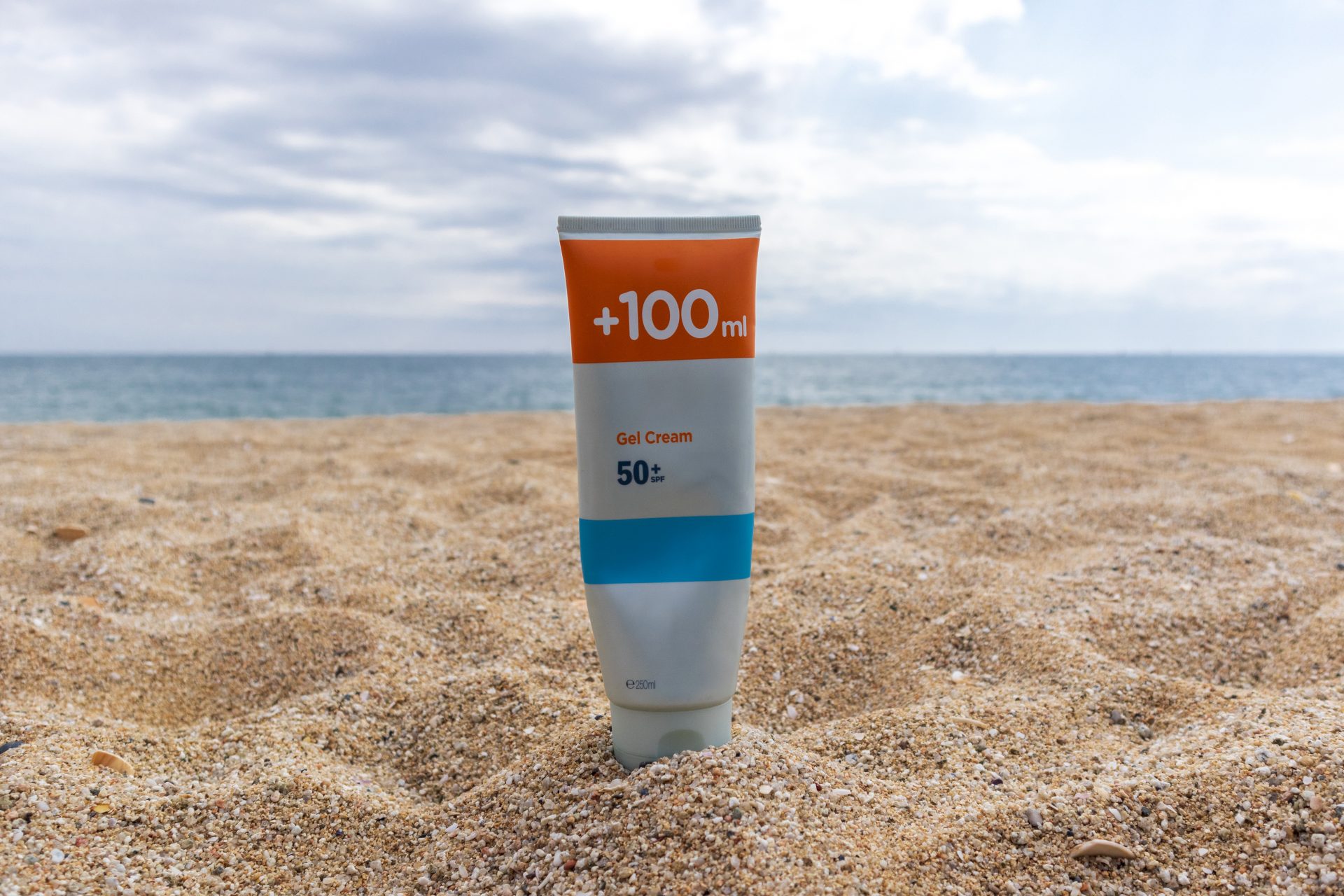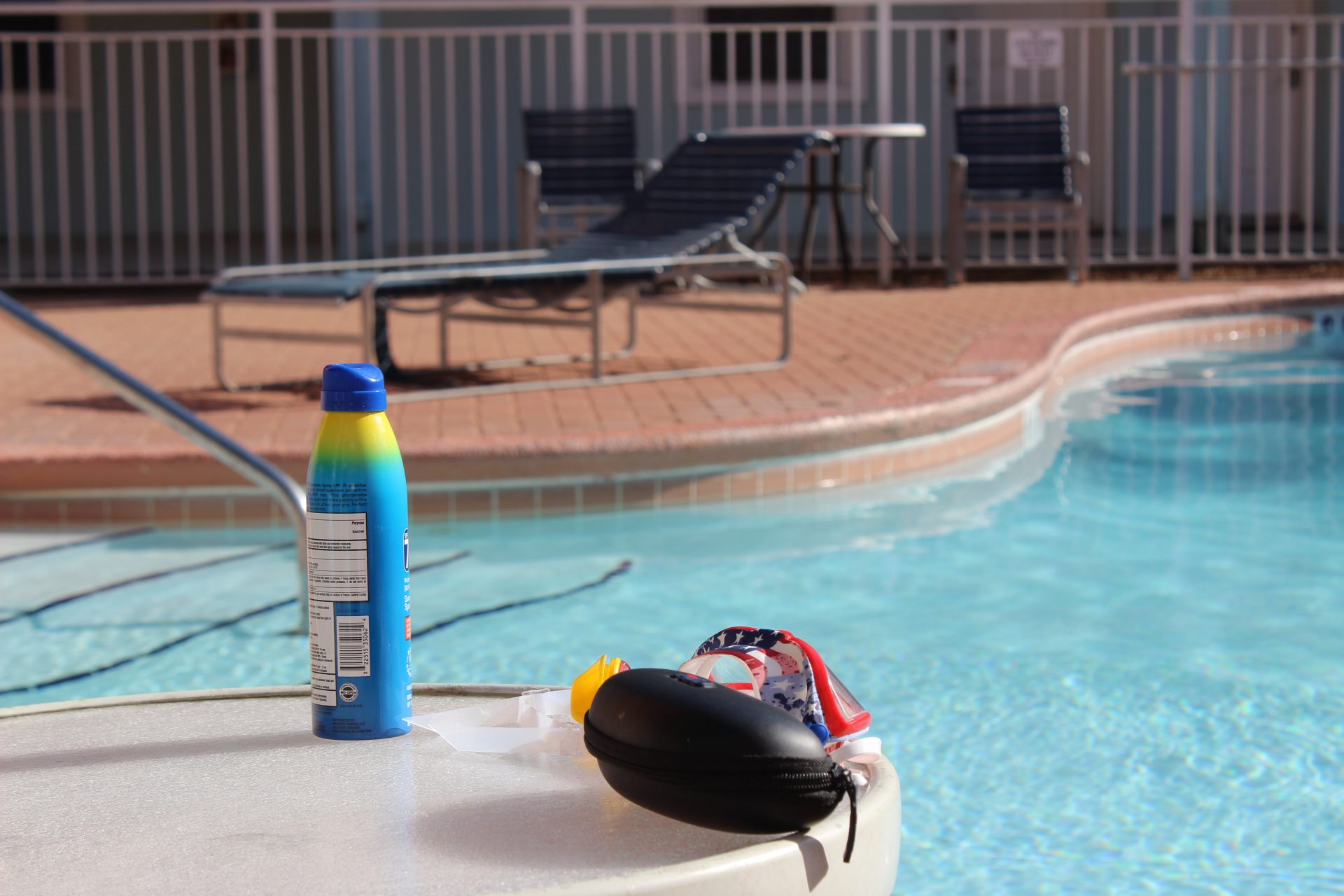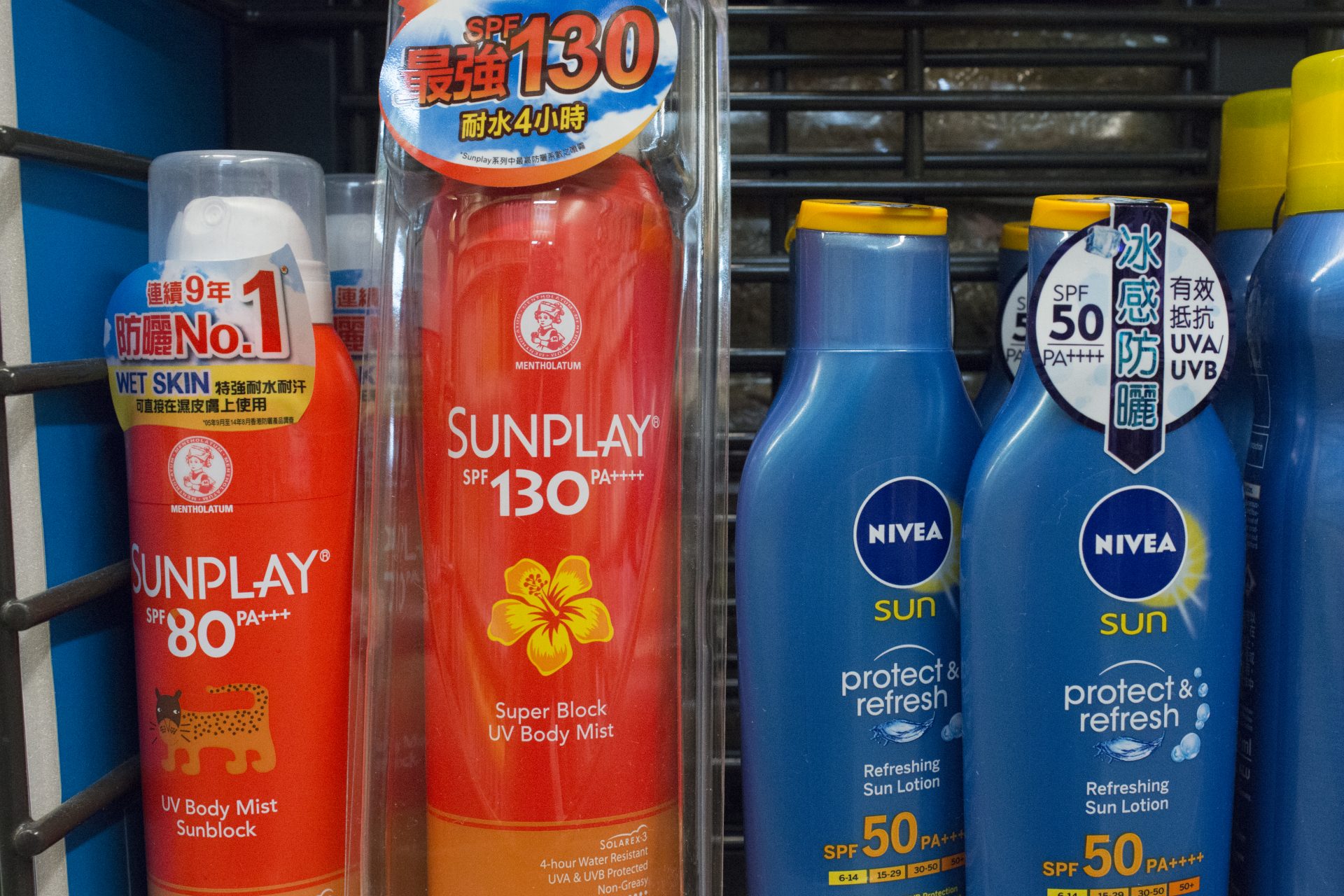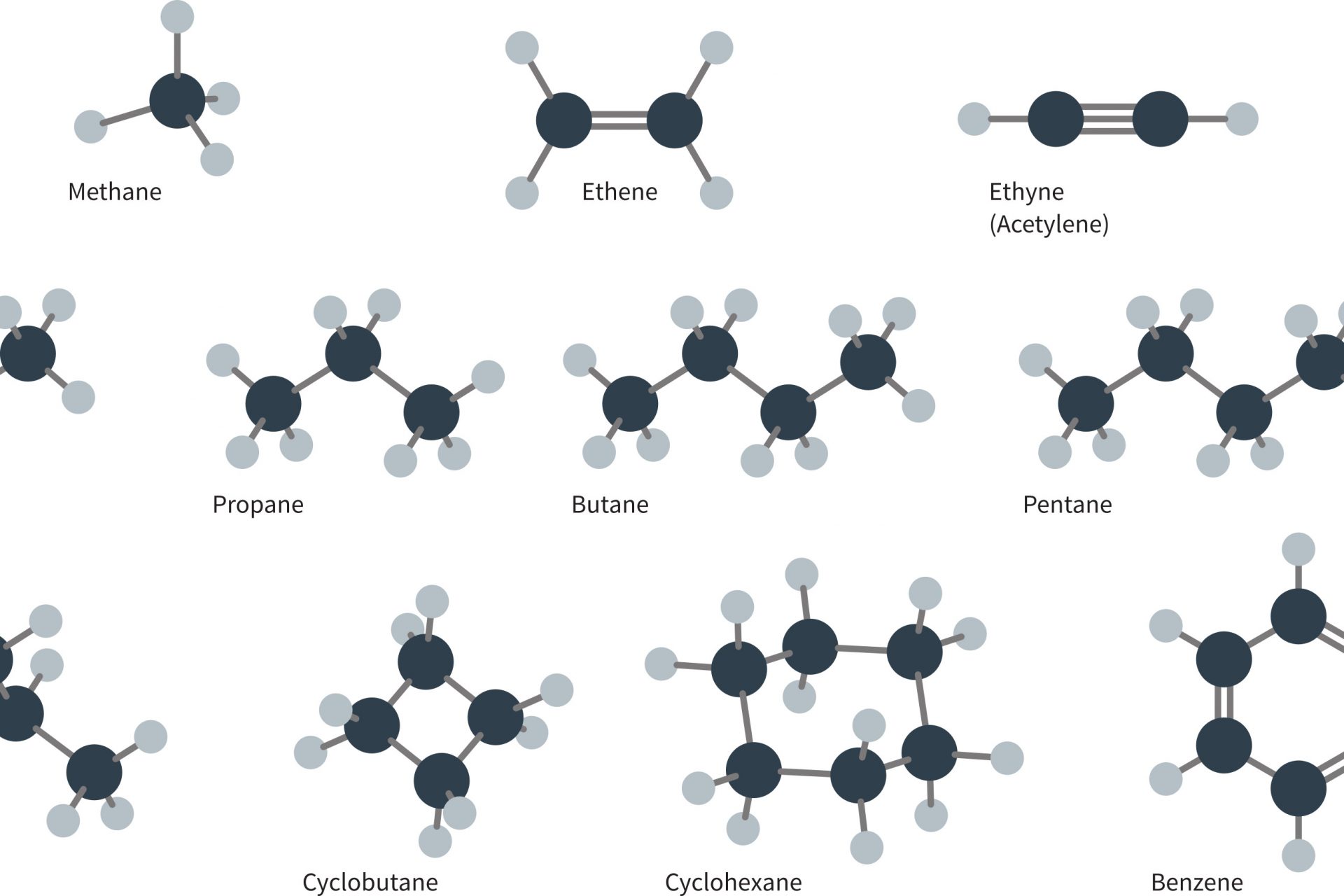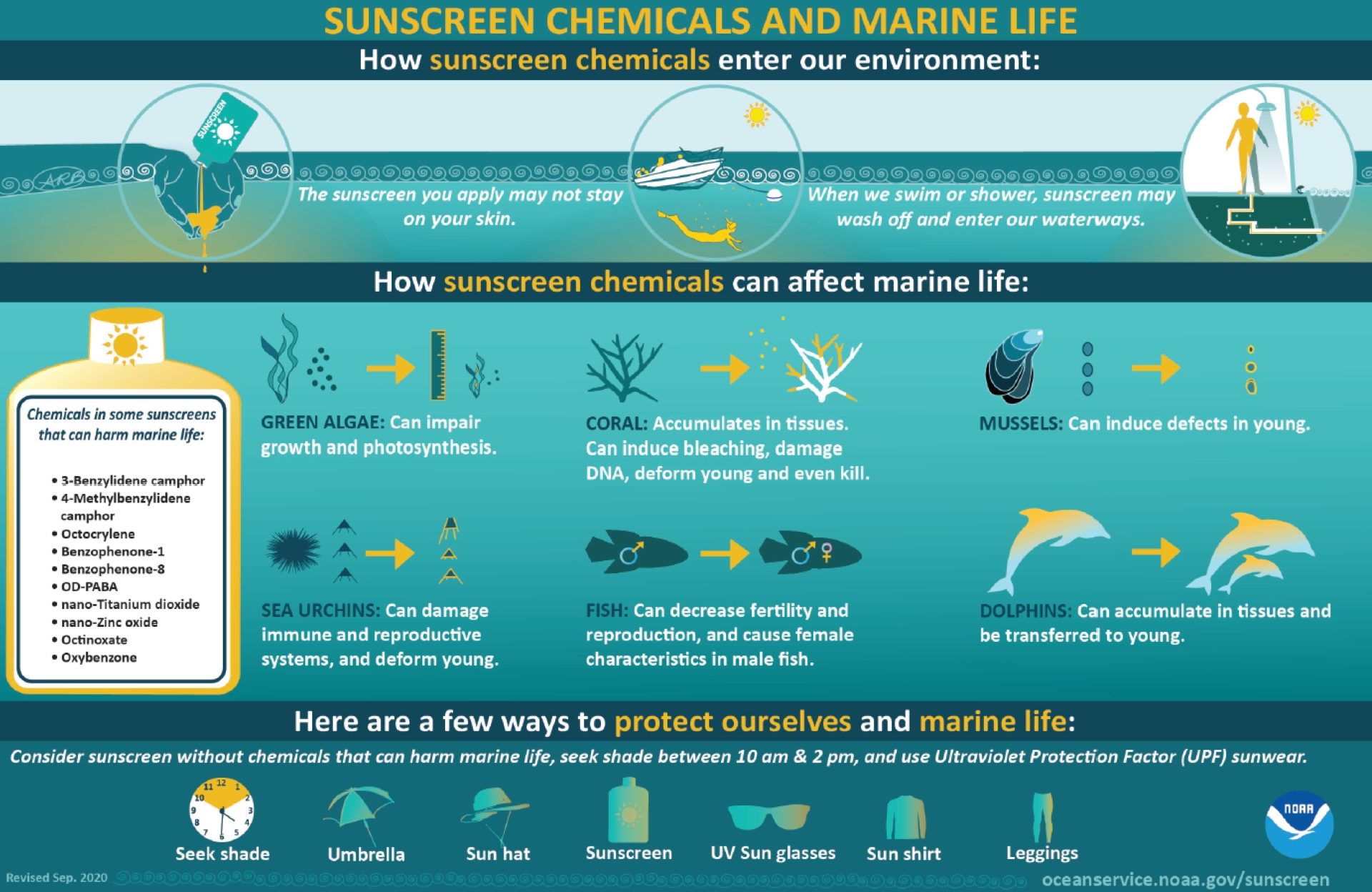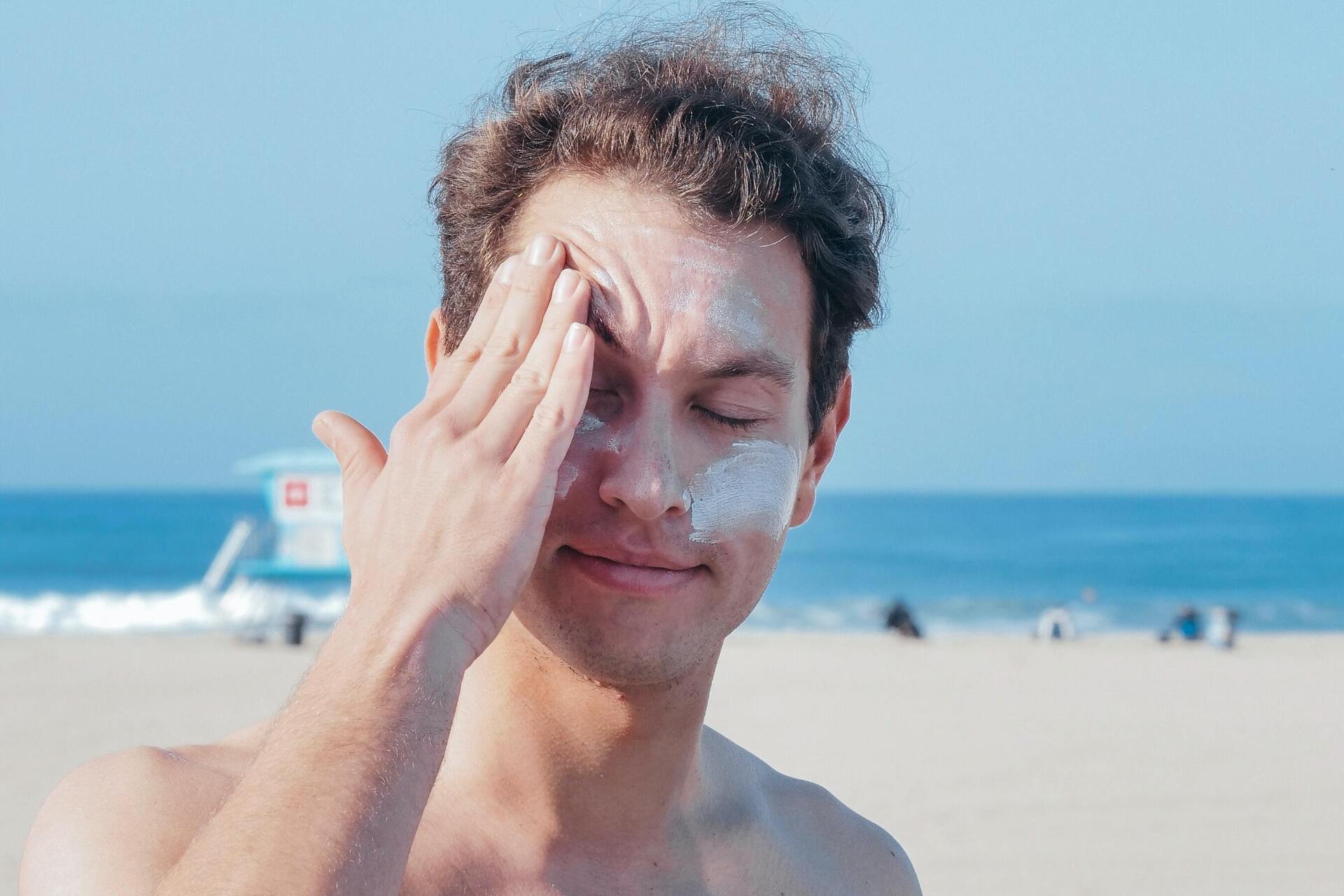We need protection from the sun but is sunscreen actually safe?
It's well-known that sunscreen is essential for preventing sunburns, skin cancer, and premature aging. For years, it was standard advice, with the most health-conscious individuals diligently applying it before any sun exposure. However, in recent times, concerns have emerged about the health and environmental impacts of sunscreen.
Those are the two main questions being raised. Fundamentally, new research suggests that some of the chemicals in some sunscreens can provoke unwanted health effects. The other main question is whether constantly shielding against the sun is healthy. Here's what we know.
While humans have existed for a couple million years, the first ultraviolet B filters were produced in 1928. The first sunscreen as we know it today was invented in Australia in 1932. But sunscreen with UVA and UVB protection didn't come out until the 1980s.
US soldiers stationed in the South Pacific during WWII struggled with sunburns, which is why the US military became one of sunscreen’s first adopters. From there, the Coppertone girl branding in the 1950s caused its popularity to boom, and in the 1970s, it was regulated in the US.
The American Academy of Dermatology is unequivocal, and has been for years — everyone should wear sunscreen, specifically SPF 30 or higher that protects against UVA and UBA rays. Scientific evidence supports its benefits in preventing short and long-term damage.
While sunscreen has been shown to prevent wrinkles, the main long-term damage it seeks to prevent is skin cancer. Studies show that regular daily use of SPF 15 sunscreen can reduce your risk of developing squamous cell carcinoma (SCC) by about 40 percent, and lower your melanoma risk by 50 percent, according to the Skin Cancer Foundation.
When choosing a sunscreen, there are two main types — mineral or chemical formulations. Chemical formulations, which use various chemicals to block the sun, are the ones that have faced the most controversy.
In 2019, the panic really started. That’s when the FDA asked for more safety data about the chemicals sunscreen manufacturers were using, mostly for chemical sunscreens. The agency didn’t say the chemicals were unsafe, but they needed more data.
In 2019 and 2020, the FDA released two more studies that caused alarm. They both found that common chemicals in sunscreen like oxybenzone can pass through the skin and enter the bloodstream. Researchers are not sure if that harms health, but it freaked people out.
While the evidence is not conclusive, several studies have found links between sunscreen chemicals, specifically oxybenzone, and changes in hormones, kidney function, and fertility. Aminal research has suggested possible links with cancer.
European scientists have recently called to cap oxybenzone and homosalate concentrations at lower levels than in the US. And while Bloomberg reports that these chemicals, due to bad press, are now rare in sunscreens below SPF 50, there are still other chemicals with dubious safety profiles.
In 2021, a lab in the US detected high levels of benzene, a known human carcinogen, in several brands of sunscreen and after-sun products. While batches of sunscreen varied a lot, the leukemia-causing chemical was found in some sprays, gels, and lotions in both chemical and mineral formulations. Big brands like Coppertone issued recalls.
Besides the scary headlines about possible implications for human health, in 2021, Hawaii announced it was banning sunscreens containing oxybenzone and octinoxate, due to the harm they cause to coral reefs.
Over the years, more evidence has emerged — common chemicals used in thousands of products to protect against the sun threaten corals and other marine life, according to the National Ocean Service. More countries and popular beach areas have since banned these sunscreens.
Infographic: National Ocean Service (NOAA), US Gov, Sunscreen Chemicals and Marine Life.
Mineral formulations work by act as a physical barrier between you and the sun and don't absorb (at least as much) into skin. Consumer watchdog Environmental Working Group (EWG) ranks sunscreen by safety and efficacy, and most of the top-ranked products are mineral formulations. Although some studies show titanium dioxide can be absorbed, experts say mineral sunscreens are generally less risky than chemical formulations.
Image: Kindel Media / Pexels
EWG scientist David Andrews told Time Magazine that consumers shouldn’t stop wearing sunscreen. However, besides turning to mineral formulation, he suggests that people should combine the slather with protective clothing, shade, and limiting time in the sun.
To add even more confusion is new research suggesting that humans benefit from sun exposure. A Swedish stuffy found that women who spent more time in the sun lived for one to two years longer than those who avoided it. Then, a British study came to similar conclusions — more sunlight was linked with longer lives.
Vitamin D is created by our bodies when exposed to UVB rays in sunlight. This is a key vitamin to proper health, and, according to the Guardian, vitamin D deficiency has been linked to cardiovascular disease, infections, and cancers.
However, long-term trials on Vitamin D supplements to prevent many of these conditions have produced mixed results, causing some scientists to ask whether Vitamin D is what makes us healthier or if Vitamin D is just a biomarker for how much we’re in the sun, which makes us healthier. In 2020, several scientists alerted doctors and policymakers to the “significant public health problem of insufficient sun exposure.”
The slogan for reducing unhealthy sun exposure by slipping on a shirt, slopping on sunblock, and slapping on a sun hat is coming under fire for its lack of nuance. Yes, sun protection is extremely important for northern Europeans living in sunny places like Australia… but maybe not as much when they’re living in Scotland. And it is even more questionable for dark-skinned Brits or Canadians, scientist Richard Weller told the Guardian.
What’s known is that sunscreen is a great tool for preventing skin cancer and premature aging. Experts say to make smart choices about sun exposure based on the UV index and add that even if you use SPF, some of the sun’s UV rays will still reach your skin. It’s extremely important to prevent sunburns, which do the most damage. And if you’re worried about chemicals, opt for mineral formulations.
More for you
Top Stories



